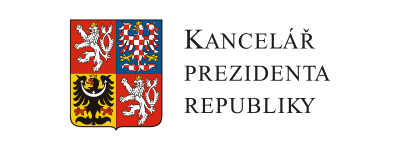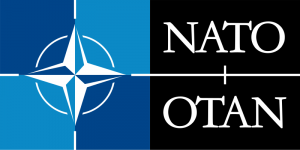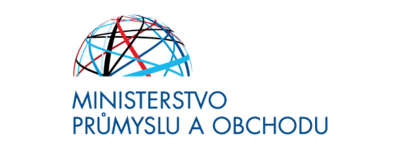Economics, Philosophy, Politics (Mgr.)

Proč zvolit studijní program
Economics, Philosophy, Politics?
Zajímají vás ekonomické, filozofické a politické výzvy 21. století? Chcete se naučit kriticky analyzovat současné ekonomické a politické prostředí a stát se lídrem a inovátorem v soukromém, veřejném či neziskovém sektoru? Magisterský studijní program Economics, Philosophy, Politics vám poskytne potřebné znalosti a dovednosti.
Profil absolventa
Tento studijní program je určen studentům, kteří chtějí získat hluboké znalosti a dovednosti v oblasti ekonomie, filozofie a politiky a uplatnit je v široké škále profesí v soukromém, veřejném i neziskovém sektoru.
Uplatnění
Co budete umět
Prezenční forma studia
Podmínky přijímacího řízení
Studium je zakončeno státní závěrečnou zkouškou, která se skládá z obhajoby diplmové práce a ústní zkoušky ze stanovených předmětů.

Parametry programu
Mgr.
Prezenční
2 roky
Angličtina
Praha
Praha 60.500 Kč (možnost rozložení školného na měsíční platby bez navýšení)
Motivační dopis nebo individuální motivační pohovor (našim absolventům stačí pouze přihláška)
29. 9. 2025
.
doc. Ing. Božena Kadeřábková, CSc. / Assistant professor Dr. Božena Kadeřábková

Průvodce studiem
The aim of this course is primarily to enable students to gain a deeper understanding of macroeconomic processes and to provide them with a solid theoretical foundation for the study of applied economic disciplines.
Subject Syllabus:
- Macroeconomic aggregates and their measurement. Macroeconomic identities.
- Consumption function: Keynesian consumption function, Fisher's Inter-temporal Choice Model of Consumption, life cycle hypothesis, permanent income hypothesis. Investment function: marginal rate of return model, Tobin's q.
- Money market and inflation. Money demand functions, money supply and money creation, money market equilibrium and transmission mechanism. Quantitative theory of money. Inflation and inflation expectations.
- Balance of Payments and Exchange Rate Systems. Net exports and real exchange rate. Purchasing power parity theory.
- Labour market and unemployment. Human capital theory.
- Economic growth: Neoclassical growth model – Solow model and Cobb-Douglas production function.
- Aggregate demand in closed economy: IS-LM model.
- The Mundell–Fleming Model and the Exchange-Rate Regime
- The aggregate demand-aggregate supply (AD-AS) model and Phillips curve: relationship between inflation and unemployment. Okun's law. Difference between Demand Pull and Cost Push Inflation.
- Monetary policy: activist policy, inflation targeting, Rational expectations, Disinflationary policy.
- Fiscal policy: the Ricardo-Barro theory. Taxes. Public debts.
- Real business cycle theory. Intertemporal labour substitution. Technological shocks. Fiscal policy in the RBC.
The course is mainly devoted to the analysis of international economic relations and its impact to national economies. Factors behind all balance of payments accounts are analyzed as well as and exchange-rate determination theories. The first part presents some traditional approaches to international economic relations and trade policies, followed by the balance of payments, the Mundell-Fleming model and finishing with the monetary approach to international economic relations analysis. The second part deals with the different theories of exchange rate determination, from the most conventional one (purchasing power parity) to the most "modern" theories, embodied in the monetary and portfolio models. The third part is devoted to the discussion of the pros and cons of different exchange rates.
Subject Syllabus:
- International Trade Policy, International Economic Relations, Sustainable development
- Instruments of trade policy, protectionism
- Political economy of trade policy; trade and developing countries
- Exchange rates and Open Economy Macroeconomics
- National income accounting and Balance of payments
- Exchange rates and Forex market
- Exchange rates regimes and Interventions
- Macroeconomic policy in an open economy: The Mundell-Fleming model, the SOE case, the 2-country case.
- Effects of fiscal and monetary policy in an open economy in various situations of capital mobility in the system of fixed and flexible exchange rates
- International Macroeconomic Policy
- International monetary systems, optimum currency areas
- Financial Globalization, Growth, Crisis, Policies
The aim of this course is to introduce some of the key works of great thinkers of political and economic thought, which laid the foundation for understanding reality, organizing our thoughts and developing civilization. The course will focus on classic and groundbreaking works whose insights are applicable and instructive today.
Subject Syllabus:
- Aristotle and Plato
- Immanuel Kant
- Civil Disobedience by Henry David Thoreau
- Friedrich Nietzsche
- The Essential Austrian Economics by: Christopher Coyne and Peter Boettke
- Economic Science & The Austrian Method and Democracy the God that Failed by Hans-Hermann Hoppe
- The Global Currency Plot by Thorsten Polliet
- The Ulimate Foundation of Economic Science and Liberty & Property by Ludwig von Mises
- Building blocks for liberty (Essays) by Walter Block
- Economic Depressions: Their Cause and Cure by Murray Rothbard
- The Ethics of Liberty by Murray Rothbard
- How to Think About the Economy by Per Bylund
This course broadens students' knowledge of the economic policy of the European Union, its structure, objectives and influence on member states and the global economy. Students will learn about key aspects of EU economic policy, including the single market, Economic and Monetary Union, fiscal policy, common agricultural policy, regional policy and competition policy. Furthermore, the course will deal with EU trade policy, energy policy and digital single market strategy. Particular attention will be paid to the EU budget, the system of economic governance and the EU's response to the financial crisis in 2008. This course is designed for students interested in the European economy and its links to the global economy.
Subject Syllabus:
- Introduction to the European Union's Economic Policy: Basics, principles, and goals of EU's economic policies.
- The Single Market and the Four Freedoms: Exploring the concept, benefits, challenges, and impact of the single market.
- The Economic and Monetary Union (EMU): Understanding the creation, development, and implications of the Eurozone.
- EU Fiscal Policy: Review of EU's fiscal policy framework, including the Stability and Growth Pact.
- Common Agricultural Policy (CAP) of the EU: Analysis of the policy's goals, implementation, and impact on EU and global agriculture.
- EU Cohesion and Regional Policy: Examination of efforts to reduce economic disparities among and within EU countries.
- EU Trade Policy: Understanding EU's common trade policy and its role in global trade dynamics.
- EU Competition Policy: Discussion on the importance of maintaining fair competition within the EU.
- EU Energy Policy: Exploration of EU's energy policy objectives: competitiveness, sustainability, and security of supply.
- EU's Digital Single Market Strategy: Review of the strategy and its implications for the EU economy.
- European Union's Budget: Understanding how the EU budget is set and spent, and its role in EU's economic policy.
- The European Union and the Financial Crisis: Analysis of EU's response to the 2008 financial crisis and subsequent Eurozone crisis.
This course is designed to provide students with a comprehensive understanding of the workings of the monetary and financial system. It will begin with basic concepts regarding the role and functions of money in the economy, including its use as a medium of exchange, store of value, and unit of account. Students will learn about the banking system, its structure, role and importance in the economy, as well as the process of money creation and the money multiplier. The course continues by examining monetary theory and the functions, instruments and implementation of central bank policy and its objective and effects on the economy.
Subject Syllabus:
- Introduction to Money and the Financial System: Understanding Basic Concepts. The Role and Functions of Money: Medium of Exchange, Store of Value, Unit of Account
- Overview of the Banking System: Structure, Role, and Importance in the Economy. The Creation of Money: Fractional Reserve Banking and Money Multiplier
- Monetary Theory: Quantity Theory of Money, Fisher and Cambridge Equation
- Central Banking: Functions, Tools, and Policy Implementation
- Monetary Policy: Objectives, Tools, and Impacts on the Economy
- Understanding Interest Rates and Their Role in the Economy
- The Structure and Functions of the Financial Markets
- Financial Instruments: Stocks, Bonds, Derivatives, and their Role in the Economy
- Introduction to Financial Institutions: Banks, Credit Unions, and Insurance Companies
- Financial Regulations: Rationale, Tools, and Effects
- Understanding Financial Crises: Causes, Consequences, and Response
- International Financial System: Foreign Exchange Market, Balance of Payments, and International Monetary System
This course provides a comprehensive view of the dynamics and structure of the world economy. It focuses on the key factors and principles that influence global economic growth and development. During the course, students will learn about the main economic indicators, theories and models of international trade, monetary systems and the role of technology in the global economic context. The course also examines the impact of international corporations and the process of globalization on the world economy. The course provides a deeper understanding of the current and future challenges facing the global economy, including financial crises and the unequal distribution of wealth and resources. This course is suitable for students of economics, international relations, political science and anyone interested in international economic issues.
Subject Syllabus:
- Introduction to the World Economy: Overview, Key Concepts, and Historical Development
- Understanding Global Economic Indicators: GDP, GNP, Human Development Index (HDI), and others
- Multinational Corporations and Globalization: Role, Impact, and Challenges
- World Economic Organizations and their Role: World Bank, International Monetary Fund (IMF), World Trade Organization (WTO). Global Trade Theory: Comparative Advantage, Protectionism, and Free Trade.
- Emerging Economies and the BRICS Nations: Understanding their Growth and Impact on the World Economy
- Economic Integration and Trade Blocs: European Union (EU), North American Free Trade Agreement (NAFTA), Association of Southeast Asian Nations (ASEAN), and others
- The Future of the World Economy: Emerging Challenges and Opportunities, Including Issues Such as Global Debt, Aging Populations, Technological Advancements, and Global Warming.
- Demographic Shifts and Economic Impact: Examining aging populations, youth bulges, and migration.
- Globalization and Labor Markets: Understanding how global economic changes affect job availability and conditions worldwide.
- International Monetary Systems: Gold Standard, Bretton Woods System, and Floating Exchange Rates
- International Capital Flows and Financial Investment: The role of international investment in economic development and stability.
- The Role of Technology in the World Economy: Digitization, Automation, and the Fourth Industrial Revolution
- Development Economics in the Global Context: Strategies for Sustainable Economic Development in Low-Income Countries
The course introduces students to selected topics and issues in political philosophy that simultaneously resonate with current political and ethical public issues and dilemmas. The scope of the course will be based on the European history of ideas. The main emphasis will be laid on the principles and challenges of liberal and democratic societies and on the task of sustainability of liberal democracy in the rapidly changing conditions of the contemporary world.
Subject Syllabus:
- What is political? (Plato, Aristotle, Machiavelli, Hobbes, Locke, Rousseau, Marx)
- We all love monarchies but ended up with republic. Why? (Montesquieu)
- What is just? (Kant, Rawls, Sandel)
- All people are nasty, brutish, and short. Really? (Hobbes, Locke, Rousseau)
- What is equality and why we need it? (Moses, St. Paul, Tocqueville, Sandel)
- What is civil and how to foster civil society? (Ferguson, Tocqueville, Alexander)
- What is democracy and why it works? (Plato, Tocqueville, Sartory, Popper)
- Is liberalism an enemy of traditions? (Arendt, Taylor, Rorty, Walzer). How to make liberalism sustainable? (Kant, Himmelfarb, Sartory)
- Concept of Power and Authority: Understanding Power Structures (Foucault, Weber, Lukes)
- Nationalism and Patriotism: Philosophical Perspectives (Orwell, Anderson, Gellner)
- Political Philosophy of Identity: Race, Gender, and Intersectionality (Butler, Crenshaw, Appiah)
- Anarchism and Libertarianism: Challenging the State (Bakunin, Kropotkin, Nozick).
Upon successful completion of this course, students will be able to: • distinguish between various branches of social science, economics and legal scholarship in particular, • compare variant institutional arrangements (settings) with respect to an existing property rights structure, • identify economic, social and cultural incentives and constraints for prospective changes in the nature and structure of property rights, • specify the role of the state ownership of the means of production, • identify the differences and similarities between the process of nationalization and its inverse – privatization, • understand consequences of a wealth inequality for the tension between the haves and the have-nots.
Subject Syllabus:
- Introduction
- Legal Scholarship, Economics and Law and Economics.
- Economics of Law.
- Contributions of Legal Scholarship to the development of economic thought.
- Institutional Theory, economics of market structures.
- Changes in property rights structure as the core of an institutional change.
- Private property as a guarantor of liberty and/or efficiency.
- A debate/workshop.
- The tradeoff between efficiency and equality.
- The inverse nature of nationalization and privatization
- Collective Ownership and collective Choice.
- Summary
This course introduces students to the core principles and techniques of statistical analysis and their application within social science research. It covers a broad spectrum of topics, including research question formulation, sampling methods, data collection, descriptive and inferential statistics, regression analysis, ANOVA, and multivariate statistical methods. A key emphasis is placed on ethical considerations in conducting and presenting statistical research, including appropriate data interpretation and handling. A primary objective is to equip students with the practical skills and understanding necessary to apply statistical methods to social research, with a focus on the practical use of statistical software. This course is suitable for students of economics, political science, and other disciplines requiring a strong foundation in statistical methods for social data analysis. Prior knowledge of basic statistics and social research methods is assumed.
Subject Syllabus:
- Introduction to Social Research: Importance and Uses of Statistical Methods.
- Basics of Statistics: Understanding Variables, Distributions, and Statistical Notation
- Research Design in Social Research: Formulating Research Questions, Hypotheses, and Variables
- Sampling Methods: Principles and Techniques for Selecting Representational Samples
- Data Collection Techniques: Surveys, Interviews, Observations, and Secondary Data
- Descriptive Statistics in Social Research: Measures of Central Tendency, Dispersion, and Position
- Visualizing Data: Graphs, Charts, and Tables for Effective Communication of Statistical Information
- Probability Theory and Inferential Statistics: Understanding Uncertainty, Probability Distributions, and Estimation
- Hypothesis Testing: Understanding Null Hypotheses, Alternative Hypotheses, and Error Types
- Correlation and Regression Analysis: Exploring Relationships between Variables
- Analysis of Variance (ANOVA) and Covariance (ANCOVA): Comparing Means of Multiple Groups
- Non-Parametric Statistics: When and How to Use Them in Social Research
- Multivariate Statistical Methods: Factor Analysis, Cluster Analysis, and Multidimensional Scaling
- Statistical Software in Social Research: An Introduction to SPSS, R, and Other Tools
- Ethics and Reporting in Statistical Social Research: Ensuring Accuracy, Honesty, and Appropriate Interpretation
To provide students with a foundational understanding of the interplay between political systems and economic decision-making processes. To equip students with the knowledge and analytical tools to critically evaluate different political systems and their impact on economic outcomes. To develop students' ability to analyze complex economic and political issues using theoretical frameworks such as rational choice, behavioral economics, and public choice. To enhance students' understanding of the decision-making processes within various political institutions and their potential for both positive and negative consequences. To foster critical thinking and analytical skills through the examination of real-world case studies and policy analyses. To prepare students for further academic or professional pursuits in fields related to economics, political science, public policy, and international relations.
Subject Syllabus:
- Introduction to Economic Decision-Making
- Political Systems overview and electoral systems: Democracies, Autocracies, and Mixed Systems
- Rational Choice Theory and Behavioral Theories
- Decision making process - individual and political
- The decision-making problems: majority voting and paradoxes
- The decision-making problems: A-B-C-D voting
- The decision-making problems: consensus voting
- Research methods and designs for ex-post policy analyses
- Consequences of political decision making: unintended effects in fiscal policy
- Consequences of political decision making: unintended effects in trade policy
- Consequences of political decision making: unintended effects in environmental policy
- Consequences of political decision making: social policy
This course offers an exploration of various aspects of globalization and provides an understanding of their economic and social conflicts. It delves into how globalization influences societal inequality, climate change, environmental issues, cultural identity, and many other domains of global concern. The course focuses on how globalization contributes to economic and social disparities, its impact on developing countries, and its association with various conflicts. It also addresses the role of technology in a globalized world, the rise of populism, and the influence of globalization on food availability. Furthermore, the course examines the roles of different international institutions and non-governmental organizations within the context of globalization and its conflicts. By taking this course, students will gain insights into the complexities and challenges posed by globalization, enabling them to critically analyze and navigate its multifaceted implications on societies, economies, and the environment.
Subject Syllabus:
- Understanding Globalisation: Economic, Political, Cultural, and Technological Dimensions
- Globalisation and Economic Disparity: Inequality Within and Between Countries
- Globalisation and Cultural Conflict: Clash of Civilizations or Global Melting Pot?
- Impact of Globalisation on Developing Economies: Exploitation or Opportunity?
- Globalisation and Environmental Conflict: Ecological Footprints, Climate Change, and Sustainable Development
- Global Corporations and Economic Sovereignty: Conflicts between Multinational Corporations and National Governments
- Globalisation and Social Movements: Anti-Globalisation Protests and the Role of Civil Society
- Technology, Globalisation, and Social Change: Digital Divide, Cybersecurity, and the Future of Work
- Globalisation and the Rise of Populism: Nationalism in the Age of Global Interdependence
- The Impact of Globalisation on Indigenous Peoples: Economic Opportunities and Social Challenges
- Globalisation and Food Security: Global Agriculture, Trade Policies, and Conflicts over Resources
- The Future of Globalisation: Trends, Challenges, and Opportunities in a Post-COVID World
This course focuses on how political science and economics has dealt with institutions in the past, and how it deals with institutions in the present, and what this means for the explanations of institutional persistence and change in the political and economic world. The analysis of institutions from the perspective of political science will focus on the development of different approaches to institutions over time, addressing among others the differences between traditional or ‘old’ institutionalism, on the one hand, and the more contemporary or ‘new’ institutionalism, on the other. We will also explore why institutional analysis has shifted from explaining institutions to explaining their effects.
Subject Syllabus:
- Institutions and Political Performance: Understanding the Role of Institutions in Political Systems
- Institutions and Economic Performance: Understanding the Role of Institutions in Economic Development
- Institutional Economics and Political Economy: Distinguishing the Fields and Their Interactions
- The Rule of Law and Economic Institutions: How Legal Systems Shape Economic Outcomes
- Political Institutions and Economic Policy: How Political Structures Affect Economic Decisions
- Informal Institutions and Their Role in Political and Economic Life
- Comparative Institutional Analysis: Understanding Differences Across Political and Economic Systems
- Path Dependence in Institutional Development: Exploring the Concept and its Implications
- Institutions and Inequality: The Impact of Institutional Structures on Social and Economic Inequality
- Institutional Change and Adaptation: Theories and Case Studies
- Corruption and Institutional Failure: Understanding the Causes and Consequences
- The Future of Institutional Analysis: New Directions and Emerging Trends
This course informs students about the practice of modern diplomacy while asking them to think critically about it. The course provides an overview of the theory and practice of diplomacy. It focuses on political analysis to shape policy, from conflict prevention through conflict management to conflict resolution, as well as topics such as preventive diplomacy, transparency of diplomatic practice, foreign policy, international relations and others. It will also educate students about the more mundane, yet necessary aspects of being a diplomat.
Subject Syllabus:
- Introduction: The Meaning of Diplomacy and its Evolutionary Foundations.
- The organization of diplomacy: the standard model.
- Ways and means of doing diplomacy.
- A Diplomat's Conceptual Toolbox: Reasoning in diplom
- Interactive diplomacy: game theory and rational empathy.
- Logical fallacies and cognitive traps.
- A Diplomat's Practical Toolbox: The Nuts and Bolts.
- Diplomacy's First Call: International Peace and Security: The conflict cycle.
- Use of force as the Ultimate Failure of Diplomacy.
- Normative Framework of Diplomacy: Diplomacy and international law.
- Human Rights and the Rule of Law Conclusion: Diplomacy as a Way of Life
- Current types of diplomacy and diplomatic practice.
This course provides an overview of key concepts in the economics of immigration. It is divided into two parts. The first part contains basic theoretical models. In other parts, attention is paid to the practical effects of migration in the entire spectrum of its influence. Attention is also focused on the specifics of European migration, its typology and asylum policies.
Subject Syllabus:
- Introduction, Background and History.
- Theories and general typology of migration.
- The Migration Decision and Forms of Migration.
- The Effect of Immigration on Wages and Employment.
- The Effect of Immigration on the Industry Structure and Technology.
- Immigration and Economic Development.
- Immigration and Assimilation.
- Estimating the Labor Market Impact of Immigration.
- The Effect of Immigration on Prices, Housing and Crime.
- Illegal Immigration, Ethnic Segregation and Attitudes to Immigration
- Refugee Migration.
- EU migration and asylum policy.
This course explores the ethical aspects of social theory and practice and the uncomfortable yet omnipresent questions of moral considerations in our lives and decision making. Its fundamental rationale is the dictum of the philosopher Jan Patočka, reiterated by thinkers from Adam Smith and John Locke to political practitioners such as Margaret Thatcher, that “no society… can function without a moral basis, which is not a matter of opportunity, circumstances or anticipated benefits.” We will explore the different hypotheses and theories about the sources and roots of moral behaviour in our evolutionary past, in the judeo-christian tradition, the reasonings of Plato and the philosophers of Antiquity, the theories of British empiricists and liberal thinkers John Hume and Adam Smith, the idealistic perspective of Immanuel Kant, the rejection of morality by Karl Marx and Friedrich Nietzsche, the reflections of the traumas and horrors of the 20th century in the works of Levinas, Patočka and others, all the way to the contemporary liberal perspective of morality as a form of justice by John Rawls et al. We will apply the knowledge derived from the classical texts to present-day concerns with the environment, inequality, social justice and the emerging mega-phenomenon of artificial intelligence.
Subject Syllabus:
- The evolutionary roots of moral behaviour
- The spiritual foundations of morality in Judaism and Christianity.
- The care for the soul in Plato and the moral thinking in Antiquity.
- Morality as a precondition for the free market and open society: the other Adam Smith
- Immanuel Kant and the categorical imperative.
- When everything is allowed: The rejection of morality by Karl Marx and Friedrich Nietzsche
- Morality of the shaken: Karl Jaspers and Emmanuel Levinas.
- The Central European contribution to moral thinking: Masaryk, Patočka, Kolakowski.
- Morality as a narrative: Michel Foucault and Jacques Derrida.
- Normative ethics of John Rawls
- Politics of moral responsibility: Margaret Thatcher, Václav Havel
- The moral challenges ahead: Environment, equality, migration, artificial intelligence
The course intends to provide information on monetary unions and an analysis of their costs and benefits. The particular focus is dedicated to the Eurozone, but it is not the only monetary union to be analyzed. The lessons introduce the vast literature and select the most important criteria, which are analyzed in more detail and also applied to real-world examples.
Subject Syllabus:
- Introduction to the Optimum Currency Area Theory
- Classical Era Criterions
- New wave OCA
- Empirical Findings since the Eurozone establishment
- Cost vs Benefits in a monetary union
- Critique of the OCA theory
- Eurozone Architecture
- The European Central Bank
- Incompleteness of the Eurozone
- Crisis and exits in monetary unions
- Financial markets and OCA
- Currency unions in the world, now, then and next
Upon successful completion of this course, students will be able to:
- distinguish between degrees and origins of institutional changes, e.g. reforms, transformations and revolutions,
- compare alternative methods of an institutional change – their uniqueness or transferability,
- identify local cultural and social conditions under which will operate external advisory teams (EU, IMF, IBRD, …),
- specify decision-making processes so as to respect the tradeoffs between economic vs. non-economic objectives,
- evaluate the relative weights of technical and political prerequisites of a political decision-making.
Subject Syllabus:
- Introduction
- Categories of capitalism and their evolution.
- Categories of socialism and their evolution.
- The Czech way of Transformation and Privatization – Part I
- The Czech way of Transformation and Privatization – Part II
- Critiques of the Czech way – Part I.
- Critiques of the Czech way – Part I.
- A debate/workshop.
- Relevance of social science for a political decision-making.
- Institutional Theory.
- Tradeoffs between economic and non-economic objectives a political decision-making.
- Summary
This course focuses on the role played by economic factors on a national and global scale, security and foreign policy. Economic conditions and activities have a profound impact on countries' strategic strategies interests, especially about the interconnectedness of today's world. This course is designed to help students understand these effects, the challenges they pose to modern societies and the ways governments address them. Topics covered in this course include major power competition, trade, technology, economics sanctions, the military-industrial complex, industrial espionage, money laundering and terrorist financing.
Subject Syllabus:
- Course Policies and Topic Introduction.
- Theories of Wealth & Power.
- Soft Power & Tools for Exercising It.
- How the US and China Became Superpowers.
- The Military-Industrial Complex.
- The American and Europe Experience with Economic Intelligence.
- Front Companies, Shell Companies, & Economic Espionage.
- Industrial & Economic Espionage.
- Analysing Economic & Financial Intelligence.
- Terrorist Financing.
- The Digital Economy and Cybersecurity: New Challenges for States
- The Role of Non-State Actors in the Global Economy and Security
Our discussions will be mostly framed within the pivotal theoretical concepts of good governance, public sphere, collective identity, and bordering. These theoretical concepts will be introduced and discussed in relation to a European level. Main objectives of the course are to acquaint students with the similarities and differences of contemporary civil societies in the EU. We will examine the role of cultural, social, and political factors during the processes of the formation of European nation states, their public spheres and collective identities. Emphasis will be placed on explaining the variety of contemporary European civil societies. The course will help students to understand the main historical roots of European plurality, including the political, socioeconomic, and cultural processes that engendered such plurality. We will further discuss main cultural and political preconditions (including policies) accompanying and guaranteeing the process of Europeanization and how to make the EU more legitimate, accountable and responsive to the needs of its citizens? Special attention will also be paid to the role of borders, bordering and its transformation in the EU. By the end of the course, students will have gained (1) understanding of variety of civil societies in Europe; (2) theoretical orientation in debates on the European governance and a European civil society formation; (3) empirical knowledge of the key factors of European public sphere/s and civil society formations; (4) competence in discussing main challenges and perspectives of further development of the European governance and its key factors including political sphere, public sphere, collective identity and civil society.
Subject Syllabus:
- Defining Europe and the Concept of Nation in European Cultures
- Key Concepts´ Discussion: Good Governance, Public Sphere, Identity
- European Modernities and Models of Nation/Civil Society Formation
- Specifics of Central Europe and Post-communist Civil Societies
- Beyond the Nation State. Civil Societies in Europe or European civil society?
- Active Borders as a Form of European Public Sphere
- European political sphere. Soft power, sleeping giant and challenges of politicisation.
- State capture, party patronage and crony clientelism at the European level
- The European Union and the Rise of Populism: Impact on European Governance
- European Identities as a Quest for a Positive Identity?
- Europe as a Community of Memory?
- Students´ presentations on topical problems of the EU policies (e.g. climate change, UA war, Brexit and its aftermaths, immigration etc.)
This course offers a comprehensive introduction to the core principles of private international law and international trade law. The lecture series will commence with an overview of the subject matter and sources of private international law. Subsequent sessions will explore international contract law and the frameworks for the resolution of international commercial disputes. The final two sessions will be dedicated to a critical analysis of the significance of international organizations within the framework of international trade law.
Subject Syllabus:
- Definition, Subject and Sources of International Private Law and International Business Law
- Law Applicable for the Contractual Obligations
- Law Applicable for Non-Contractual Obligations
- International Litigation
- International Arbitration
- Recognition and Enforcement of Foreign Arbitral Awards
- International Transport of Goods
- International Licensing Contract and Protection of Intellectual Property Rights
- Contract for Construction for Building and Engineering Works
- Settlement of International Investment Disputes
- International Economic Organisations – World Trade Organisation and OPEC
- Regional International Organisations – EU
The aim of the course is to enable students to consult, present and create partial parts of their diploma theses, to learn to correctly interpret economic and political topics and to perform a simple evaluation of the results. Within the subject, students will become familiar with the creation of the structure of the thesis, the creation of the outline of the thesis, formal requirements including citation standards, the possibilities of obtaining professional texts and the use of statistical data, their analysis and the correct economic interpretation of statistical data, including the inference of possible political impacts. The course is intended for students who are starting to write a diploma thesis. Students will acquire the skills needed to adopt an appropriate methodological approach and learn to use appropriate methods to create a thesis. The result should be the ability to develop a diploma thesis in cooperation with the assigned thesis supervisor. The seminar work is presented in English.
The aim of the course is the introduction of the basics of EU law to students, both by introducing the institutional law of the EU and the main areas of substantive EU law. Firstly, lectures will focus, in particular, on supranational character of the EU, membership in the EU and its benefits, legal system and judicial system. The course will help students understand specific character of the European Union as a unique organisation which draws inspiration from the functioning of both international organisations and federations. Students will learn how EU law is applied in the Member States, how individuals can invoke it and how EU law is enforced. Secondly, attention will be paid to internal market freedoms and competition law, i. e. the core of substantive law of the EU. The internal market freedoms represent the greatest achievement of European integration as well as a major benefit of EU membership. Thus, the four freedoms – free movement of goods, persons, services and capital - will be explained in more detail. The freedoms are closely linked with competition law because competition rules have special role in the EU: to protect the internal market. Students will analyse case-law of the Court of Justice of the EU, solve fictional cases and quizzes in order to better understand the basics of EU law.
Subject Syllabus:
- European Union between an international organisation and a federation, supranationality of the EU
- Membership in the EU and its benefits, rights and obligations of the Member States and the EU
- Competences of the EU, principle of conferral, exclusive, shared, coordinating, supplementing competences
- System of EU law – characteristics of EU law, legal sources, hierarchy of norms, primary law
- System of EU law – secondary law, Official Journal of the EU, EUR-Lex
- Principle of direct effect, principle of primacy, liability of Member States for damage caused by breach of EU law
- Judicial system of the EU, proceedings before the Court of Justice of the EU
- Internal market, free movement of goods
- Free movement of persons, EU citizenship
- Free movement of workers, freedom of establishment
- Free movement of services and capital
- Competition law, cartels, abuse of dominant position
This course concentrates on the emergence, functions, organization, and future prospects of political parties in modern (mainly European) representative democracies. Political parties are one of the central actors of modern representative democracies. They represent views of citizens and link them with democratic institutions. They play a crucial role in interest aggregation and articulation of societal demands. They are essential actors in competitive elections. They also organize working of parliaments and governments. And, finally, parties recruit candidates for public offices and governing institutions. In many respects, therefore, parties seem indispensable for democracy. However, the legitimacy and functioning of political parties are also increasingly challenged by parties’ increasing unpopularity with citizens, the rise of populism and political polarization, and some democratic innovations including radical reforms of democratic institutions. The course will employ both the classic and modern academic literature on the role of political parties in order to explore in detail key challenges parties face in contemporary representative democracies, and the consequences of these challenges for political representation and democracy.
Subject Syllabus:
- Political Parties and Representative Democracy in Historical Perspective
- Critique of Contemporary Parties and Party Systems
- Challenges of Internal Structures: Parties and Direct Intra-Party Democracy
- Parliament and Government Divide: Challenge of Effective Opposition
- Populism and its Challenge to Party Politics
- Political Polarization and Its Challenge to Party Systems
- Party Fragmentation and Its Challenge to Party System
- Patronage and Clientelism and its Challenge to Party Politics
- Democratic Innovations and Their Challenge to Party Government
- Social Media and Challenges for Party Campaigning
- Money and its Challenge to Party Politics
- The Future of Political Parties: Adaptation or Decline?
.
Doporučené postgraduální programy
Na CEVRO Univerzitě můžete pokračovat ve studiu prestižních postgraduálních programů. Námi navrhované programy si můžete zobrazit níže:
Erasmus
A semester abroad at CEVRO University provides students with the opportunity to experience a new culture, meet exciting students from across the globe, and learn amongst world-class professors and lecturers.
Studying at CEVRO University will allow you to:
- Engage within small classes and interact directly with professors and fellow students
- Learn from policy experts including former ambassadors, government ministers, and renowned authors who have decades of experience in their respective fields
- Experience the wonders of one of the most beautiful and historic cities in Europe, Prague
- Immerse yourself in a new culture and forge relationships that will last a lifetime
- Explore other unique European cities and destinations such as Vienna, Budapest, or Berlin
Gap Year
Have you just finished your high school and want to think carefuly about what college to go to? We offer you an opportunity to take a gap year. You will have a chance to:
- Study in English and live in Prague
- Take a few classes and experience university environment
- Travel and visit the most beautiful European cities such as Vienna, Budapest, or Berlin
- Volunteer and help out the community
A gap year at the CEVRO University provides students with the opportunity to experience a new culture, meet exciting students from across the globe, and learn amongst world-class professors and lecturers.
Studying at the CEVRO University will allow you to:
- Engage within small classes and interact directly with professors and fellow students
- Learn from policy experts including former ambassadors, government ministers, and renowned authors who have decades of experience in their respective fields
- Experience the wonders of one of the most beautiful and historic cities in Europe, Prague
- Immerse yourself in a new culture and forge relationships that will last a lifetime
- Explore other unique European cities and destinations such as Vienna, Budapest, or Berlin
Study Abroad
A semester abroad at CEVRO University provides students with the opportunity to experience a new culture, meet exciting students from across the globe, and learn amongst world-class professors and lecturers. Studying at CEVRO University will allow you to:
- Engage within small classes and interact directly with professors and fellow students
- Learn from policy experts including former ambassadors, government ministers, and renowned authors who have decades of experience in their respective fields
- Experience the wonders of one of the most beautiful and historic cities in Europe, Prague
- Immerse yourself in a new culture and forge relationships that will last a lifetime
- Explore other unique European cities and destinations such as Vienna, Budapest, or Berlin
Koho u nás potkáte
Proč CEVRO Univerzita?
V Praze a v Českém Krumlově nabízíme prestižní vzdělávání v oblastech práva, politologie, mezinárodních vztahů, ekonomie, bezpečnosti, veřejné správy nebo managementu sociálních služeb.
Programově malá škola
Možnost rozložení školného na splátky
Výborné uplatnění absolventů
Studium v zahraničí
Praxe
Výhody praxí a stáží při studiu na CEVRO Univerzitě
Nezřídka se stává, že se student v rámci praxe v institucích a společnostech osvědčí natolik, že v nich zůstává jako zaměstnanec. Jedná se tedy o skvělou příležitost, jak nastartovat svoji profesní dráhu.
Kde praxe a stáže probíhají?
Řada našich studijních programů je akreditována jako profesní. Nedílnou součástí studia je proto i povinná praxe. Tu naši studenti absolvují u našich smluvních partnerů, mezi které patří ministerstva, Poslanecká sněmovna, Senát, řada krajských, městských a obecních úřadů, Policie ČR, Armáda ČR, záchranná služba, Kancelář prezidenta republiky nebo vybraná velvyslanectví a řada významných společností.
S kým spolupracujeme




Příběhy studentů z praxe























